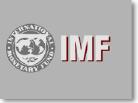|
IMF warns Russia on aid
|
 |
August 28, 1998: 8:06 p.m. ET
Camdessus says a retreat from reform would have "dire consequences"
|
NEW YORK (CNNfn) - The head of the International Monetary Fund appealed to Russia Friday not to swerve from its seven-year course of economic reforms, warning of "dire social consequences" for the poorest in the country in the event of a return to a Soviet command-style economy.
Michel Camdessus said he told acting Russian prime minister Victor Chernomyrdin, whom he met in Ukraine earlier this week, that the disbursement of future IMF aid to the country hinged on the resolve of the country's parliament and government to continue on the reformist course mapped out earlier this year.
The IMF assembled a $22.6 billion bailout for Russia in July. But the deal, which was contingent on tight monetary policies coupled with tax reform and spending cuts, has unraveled in recent days amid a free-fall in Russian markets and a sharp deterioration in the value of the ruble.
Russia already has gone through its initial $4.8 billion infusion of IMF cash as it desperately sought to defend its beleaguered national currency, the ruble.
Appearing on "Moneyline News Hour with Lou Dobbs," Daniel Yergin, president of Cambridge Energy Research Associates, said the IMF is in a tough spot on Russia.
"It's hard to see what you will get in the next several weeks to reassure the IMF. The IMF is almost out of money and has its own critics. It doesn't have a lot of room to maneuver," he said.
Legislators in Russia's opposition-dominated lower house of parliament, or Duma, are pressing for a return to Soviet-era policies such as limited price controls and subsidies to shore up ailing state enterprises.
"I told (Chernomyrdin) unambiguously that this would lead to disaster, and I didn't see him associating himself with these kinds of policies," Camdessus told reporters in a late afternoon briefing on his whirlwind visit to meet with Russian and Ukrainian leaders.
Camdessus said he made it amply clear to Chernomyrdin that the IMF's largesse ended where Russian backtracking began.
"I had to leave him without any illusions that any such choices could benefit from the international (community) and from this institution in particular," Camdessus said.
Camdessus said he "highly regretted" Russia's decision a week ago to effectively devalue its ruble and restructure billions of dollars in ruble-denominated debt, moves that left many overseas investors in the lurch.
He said Chernomyrdin replied that Russia is eager to restore hope and confidence among investors, and was prepared to take necessary actions to ensure that outcome.
Nonetheless, it remained unclear Friday how Chernomyrdin, a Soviet-style manager who once ran Russia's largest gas monopoly, would be able to stitch a consensus among the radically opposing factions vying for his ear.
Camdessus urged the Russian government to work with overseas creditors to "find a cooperative response to their problems."
"The IMF is prepared to help countries to help themselves that are committed to pursuing the right policies," Camdessus said.
He asserted the IMF still had ample reserves to aid countries that deserved help. At the same time, he underlined his hope and conviction that the scenario in Russia will not serve as a precedent for emerging countries in distress.
"I don't see any other country among the emerging markets being in the very dark situation of Russia," he said.
President Clinton will go to Moscow next week to meet with Yeltsin and other Russian leaders. However, Robert Hormats, vice chairman of Goldman Sachs International, said little likely will come of the meetings.
"The U.S. really doesn't have a great deal of influence. When the president goes there, he can meet with other members of the Duma who will play a key role and regional leaders who have more power and will exercise it. (Clinton) needs to convince them to address some of these issues," Hormats said.
Besides the weighty issues at hand, Yergin said, Yeltsin's political problems will make the summit tougher.
"This is a summit with Yeltsin in a post-Yeltsin era. There's the complexity of dealing with a leader that may pass from the scene quickly, even though he doesn't intend to," Yergin said.
|
|
|
|
|
|
IMF
The World Bank
|
Note: Pages will open in a new browser window
External sites are not endorsed by CNNmoney
|
|
|
|
 |

|

